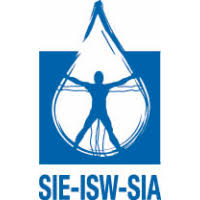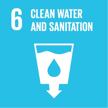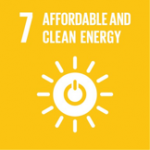About this project
The world is experiencing a global pandemic, including Indonesia. Until June 4, 2020, Indonesia reported that around 28,818 people were confirmed positive. Hygiene behavior is the key to breaking the chain of infection of Covid-19 transmission, especially the behavior of Handwashing with Soap.
During a pandemic, water needs are increasing, but there are still many areas that do not have access to clean water. Including in Bandar Lampung, one of the cities on the island of Sumatera, Indonesia.
Bandar Lampung is the capital of Lampung Province. It has an area of 169.21km and is divided into 20 districts and 126 villages with a population of 1,015,910 people (Central Statistics Agency, 2017). However, only 21 percent of the community is connected to piped water (Climate Vulnerability and Resilience Assessment, 2018), the rest use water from wells and springs.
Pesawahan district, according to the Bandar Lampung City Sanitation Strategy Document, 2019, is categorized as a slum area and lack of water access. It is located on the coast with an area of 0.63 km, with population of 12,726 people (Central Statistics Agency, 2019).
RT. 047 Kampung Gudang Agen is one of the sub-villages in Urban Village Pesawahan. There are 108 households, consisting of 502 people, and 20% of them children (Population Data Teluk Betung Selatan sub district). The majority of households in Gudang Agen Village are poor families and work as laborers.
Out of 108 households, only 80 have a toilet and access to clean water. 28 households do not have toilets and clean water, thus they use 4 public toilets in poor condition. Out of those 4, 1 public toilet does not work because there is no electricity to pull water from wells/water sources.
The lack of access to water, the absence of handwashing facilities, and the lack of public awareness of clean and healthy living behavior make the community in Gudang Gudang village more vulnerable during the pandemic.
Goals and Objectives
The goal of this project is to improve quality of health of community through enhance water access and hygiene behavior in response to the global pandemic.
Objectives:
1. To raise awareness of the hand washing with soap in 108 household
2. 108 household have access to clean water and health toilet
3. To improve capacity of CBO on management of public toilet facilities
Expected result
1. 108 households have an understanding of hands washing with soap in running water
2. 1 (one) public toilet rehabilitated
3. Community Based Organization(CBO) to managed the public toilet facilities established and trained
To respond to the prevention of covid-19 in RT.047, Gudang Agen village so that there is a change in community behavior, there are three approaches taken, namely, enabling environment, demand creation, and supply improvement.
Demand Creation is intended to trigger the community through a campaign to change the behavior of Handwashing with Soap conducted through:
1. Religious broadcasts/ broadcasts that will be broadcasted on mosque speakers. The approach was chosen because the majority of the population in Gudang Agen are Moslems.
2. Posters and videos that are informative, and can inspire and adjust the regional conditions, on how handwashing with soap can be done with water saving.
3. Approach to youth and community leaders to trigger the community.
Supply Improvement. When the community has been triggered to change the behavior, it is supported by the supply of facilities. In this context, this project will be carried out through:
1. Rehabilitation of water source facilities supported by solar pumps. The choice of technology is because most of the people work as laborers thus that technology requires low cost and efficient maintenance. Indonesia is a tropical country where the sun rises 12 hours a day so that solar power can be an environmentally friendly alternative.
2. Provision of communal hand washing facilities,
Enabling Environment, or the creation of a conducive environment, is encouraged through Community Based Organizations (CBOs) to manage sanitation facilities, so that facilities can be maintained to support their sustainability.
When the above approaches conducted, we hope that the community will be willing to contribute to beautify their toilets and changes in behavior will continue.
Youth will be involved in every stage of the activity, starting from consolidation with stakeholders, making communication media and implementation. In addition, we will partner with local government, local leaders and the Bandar Lampung City Health office to encourage behavior change.
This region is expected to be an example for other regions so that it can be scaled up to the surrounding environment and can support the Bandar Lampung city government to reach SDGs 6 by 2030.
Sustainable Development Goals
Partners



About me / organisation
Youth with Sanitation Concern (YSC)
Youth with Sanitation Concern (YSC) is youth community that focuses on water, sanitation and hygiene practices issues to support Sustainable Development Goals 2030 point 6. Established in Lampung, Indonesia since 2018, YSC aims to become the pioneer of the community's safely managed sanitation behavior change.
YSC actively promotes sanitation issues, including safely managed sanitation, menstrual hygiene management, handwashing with soap, sanitation facilities maintenance and also stunting, in both online and offline activities. Sanitation is often considered an unsexy issue, so YSC presents sanitation in creative ways to attract to the community, especially young people. This is in line with YSC's mission, which is to foster youth and community participation in creating safely managed sanitation.
YSC believes that youth are the bridge of the present and the future, so that their current understanding will influence how we live in the future. In its activities, YSC collaborates with various stakeholders such as the youth community, government, NGOs, universities, mass media, and Community Civil Organizations (CSOs) thus we can create a wider impact to achieve sustainable goals together.
The project is led by Khorik Istiana (25 years), Chairman of the Youth with Sanitation Concern. Khorik is a student majoring in Biology of Open University. Khorik has been actively promoting sanitation since 2018. Khorik has experience in coordinating YSC activities such as Lampung Sanitation Week, Menstrual Hygiene Management (MHM) campaign, social media campaign, and regular sanitation seminar. Khorik was also a speaker at the National Sanitation and Water Conference in Indonesia (Jakarta, 2019) and Speaker in Millennial Voice for Stunting (Jakarta, 2020)
Website Website

